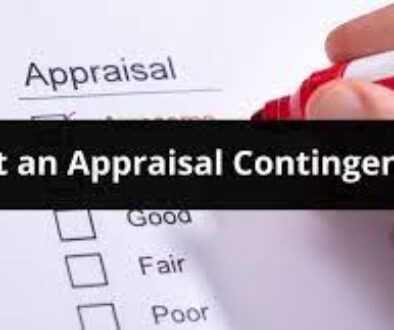Comparable Properties
What Are Comps In Real Estate?
Simply put, real estate comparables – or “comps” – are comparable properties in a specific area that you’re looking to buy or sell in. Comps are used to determine the value of a home by comparing it to similar properties sold in the same neighborhood or in an area as close as possible to the house being valued.
For example, if you have a three-bedroom, two-bathroom house with 1,500 square feet of living space that you’re thinking of selling, finding homes with similar stats in the same general area is a good way to start estimating your property’s value.
If you’re looking to buy and don’t want to pay too much, finding good comps in the area can help you understand what the home is worth before you make an offer. Real estate comps are all about determining value, which can be useful for a number of different purposes across the various facets of real estate, from buying and selling to investing and making housing market predictions.
Who Uses Real Estate Comparables?
Real estate comps can be useful for a variety of real estate professionals as well as members of the general public who are on the hunt for houses. Depending on your job or your home buying goal, comparable sales can provide invaluable insights toward making the best decision regarding where to live or how you provide the best possible service to your clients. Let’s take a look at how house comps can be useful for people from virtually all walks of life.
Home Buyers
Comps are a great resource for buying a house.As we covered previously, real estate comps can provide valuable knowledge for house hunters who think they’ve found the home of their dreams. Once you’ve zeroed in on a property you’re thinking of making an offer on, researching similar properties in the area helps verify that the listing price is fair. This information is invaluable when fine-tuning your initial offer amount – and it provides a way to guide your strategy when negotiating a final price.
Home Sellers
Real estate comps provide a few critical insights when it comes to selling your home. As you may already know, understanding the prices of similar homes in the area will help you decide how to handle pricing yours. Another, perhaps less obvious, key benefit is that it can help provide clues on what selling points to highlight when you list your house for sale.
Appraisers
One of the most important steps to completing the sale of a home is the appraisal. This process, usually initiated by the buyer’s lender, calls on a professional appraiser to determine the market value of the house in question. During a home appraisal, an appraiser relies on comps, as well as a number of other factors, to determine an accurate value of a property. This can make or break a transaction, making it one of the most important processes real estate comps are used for.
How To Find Real Estate Comps For Your House
Whether you’re buying or selling, pulling comps is a critical step toward making sure you make the right financial decision. Let’s look at the various ways you can go about doing this.
Do Your Own Research
If you don’t want to consult an agent, a quick bit of internet research can give you the information you need to make your comparisons. Many sites like Redfin, Realtor and Zillow have “Find A Home” features that can make this process quick and easy. Keep in mind that comparables from such websites are not as accurate as ones pulled through agents, and the comparables you might see may not be as close to your chosen property as you might think.
Want to take a deeper dive? County record sites can provide an even more in-depth look at the characteristics of specific properties and area trends.
How Do Comps Work In Real Estate?
Whether you’re a professional in the real estate business, or just an eager home buyer or seller pulling comps, there are some key features to consider. Let’s dive into a few of them.
Location
You’ve probably heard the old real estate adage, “Location, location, location.” Well, it’s an old adage because it’s pretty darn true. A 500-square-foot apartment in parts of New York City can be 10 times as expensive as a 5,000-square-foot house in the middle of the country. The differences aren’t always quite that stark, but you get the idea. Typically, optimal comps are no further than one mile from the property, but that will depend on your area (rural, etc.)
Condition
How well-built and well-maintained a home is can be a critical component of its comparable value. For instance, there may be a significant price difference between a home with a leaking roof and another that has a brand new roof. When running comps, make sure you take into account the condition of all parts of the homes you’re comparing.
Age
New homes tend to have higher value, so a home built in 1950 and one built in 2010 may not have similar values just because they have the same number of bathrooms and bedrooms.
Number Of Rooms
A four-bed, two-bath house may seem like a pretty close comp for a three-bed, two-bath house, but that’s not necessarily true. That extra bedroom can often mean a price difference of $100,000 or more. Don’t forget to factor in size, too, as square footage can have a major impact on home value.
Lot Size
Acreage value varies by location but, all other factors being equal, more land means more value. Even if the houses are pretty comparable, if one sits on 2 acres and the other sits on 10 acres, you need to take that into account when determining the value of both properties. This is especially true based on location. A large lot near a popular urban center could be countless times more valuable than a rural plot of land the exact same size.




